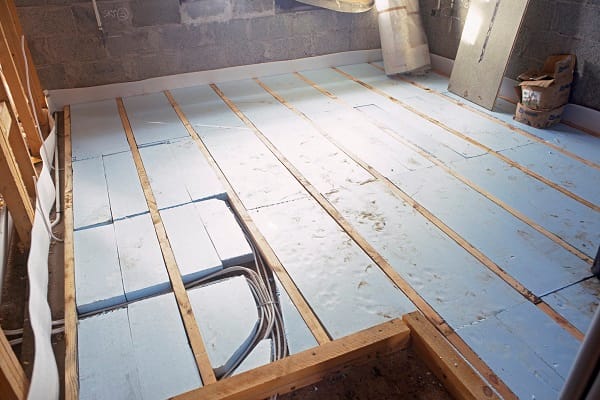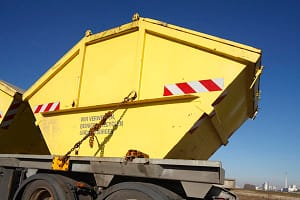Winter brings unique difficulties for commercial property owners in Tunbridge Wells. As temperatures drop and harsh weather sets in, roofing systems face increased stress from rain, snow, and freezing conditions. These seasonal pressures can reveal weaknesses that might go unnoticed during milder months. Smart business owners realise that preventative maintenance is far more cost-effective than emergency repairs. A minor leak left unchecked can quickly escalate into serious structural damage, inventory losses, and business disruption.
Regular roof inspections are especially important before winter when weather-related issues are most likely to emerge. Businesses that implement systematic winter roof checks often experience fewer unexpected maintenance costs. These scheduled inspections can point out potential problems with drainage, flashing, and membrane integrity before they develop into costly emergencies that affect operations and customer experience.
Why winter roof damage threatens business continuity
Winter roof damage poses a serious financial threat to business operations. Roof failures during winter can lead to significant repair costs, lost trading days, damaged stock, and customer disruption.
Commercial properties face specific winter vulnerabilities. Flat roofs common in business premises collect snow and water, putting stress on drainage systems. HVAC installations create additional points where water can enter. Working with reliable roofers in Tunbridge Wells helps identify these weak spots before they cause major problems.
Preventative roof maintenance directly reduces business interruption risks. A small investment in regular inspections can help prevent the kind of multi-day closures that businesses may face after major roof leaks. This downtime often costs more in lost revenue than the repairs themselves.
Insurance companies increasingly require proof of regular maintenance. Without documented roof care, many policies won’t cover winter damage claims. This creates a financial risk for business owners who neglect roof inspections.
Essential commercial roof inspection checklist for winter
Before winter arrives, business owners should arrange professional inspection of their flat commercial roofs. Key inspection points include the roof membrane for tears, blisters, or punctures. Even small damage can expand during freeze-thaw cycles, creating entry points for water. Roof edges and seams need careful checking as they often fail first during harsh weather.
Drainage systems require thorough inspection before winter. Signs of poor drainage include standing water, blocked downpipes, and debris in gutters. These issues can lead to ice dams and water backup that damages interior spaces. Proper drainage prevents the weight of standing water from stressing the roof structure.
HVAC installations and other roof penetrations create weak spots. Inspectors should check flashing and seals around all equipment, vents, and skylights. Temperature fluctuations cause materials to expand and contract, often breaking seals around these features.
Moss and vegetation growth speeds up roof deterioration in winter. These plants trap moisture against the roof surface, leading to freezing damage when temperatures drop. Regular removal of organic matter extends roof life and stops water entry points from forming.
Professional inspections should include detailed documentation with photos and written reports. These records satisfy insurance requirements and build a maintenance history that helps track developing problems.
How to assess and address winter gutter maintenance
The business case for proactive gutter maintenance is clear. Clean, functional gutters protect building foundations, prevent water damage to stock, and maintain safe customer access. Regular maintenance costs less than emergency repairs and helps prevent revenue losses from business closures.
Winter creates specific gutter problems for commercial properties. Freezing temperatures can crack blocked gutters, while snow weight can pull guttering away from fascia boards. Overflowing gutters create dangerous ice patches on walkways, increasing liability risks for business owners.
Commercial properties often benefit from gutter cleaning twice yearly, with the most important service scheduled after autumn leaf fall. This timing helps prevent blockages during winter storms when access for repairs becomes difficult. The cost difference between scheduled maintenance and emergency repairs can be significant.
When selecting gutter maintenance specialists, verify their commercial experience and insurance coverage. Specialists familiar with local building types can identify possible problem areas based on experience with similar properties in the area.
Protecting business assets with proper insulation and ventilation
Roof ventilation and insulation directly affect business energy costs. Poor roof insulation can increase heating expenses during winter months. This affects both operating costs and customer comfort in commercial spaces.
Warning signs of inadequate insulation include uneven temperatures, rapid heat loss, and ice dams forming at roof edges. These issues indicate heat escaping through the roof, creating conditions for condensation and water damage inside the building.
Proper ventilation helps prevent costly condensation damage to inventory, equipment, and building structures. Without adequate airflow, warm indoor air meets cold roof surfaces, creating moisture that damages ceilings and encourages mould growth. This can lead to health concerns and compliance issues.
Insulation improvements can result in reduced energy costs over time. Commercial properties with upgraded insulation and ventilation often report fewer winter maintenance problems and more consistent indoor temperatures. This results in improved working conditions and customer experiences.
UK building regulations set specific requirements for commercial property ventilation. Property owners should ensure their buildings meet current standards, as insurance providers may check compliance when assessing claims for winter-related damage.
Creating a winter property maintenance strategy for business continuity
Effective winter property maintenance works best with a scheduled calendar approach. Smart business owners combine monthly visual inspections by staff with quarterly professional assessments. This system helps catch developing issues before they cause business interruption. The most important professional inspection should occur in early autumn before winter weather arrives.
Budgeting appropriately for seasonal maintenance avoids financial surprises. Setting aside a portion of property value annually for maintenance allows businesses to address small issues before they become major expenses that affect operations.
Regular winter property checks help keep businesses in Tunbridge Wells operating smoothly, even when weather conditions turn harsh. Addressing issues early, keeping accurate records, and working with local professionals means small problems are fixed before they grow. Planning ahead and maintaining clear standards helps keep property value safe, insurance requirements met, and business downtime as low as possible throughout the coldest months.






Leave a Comment